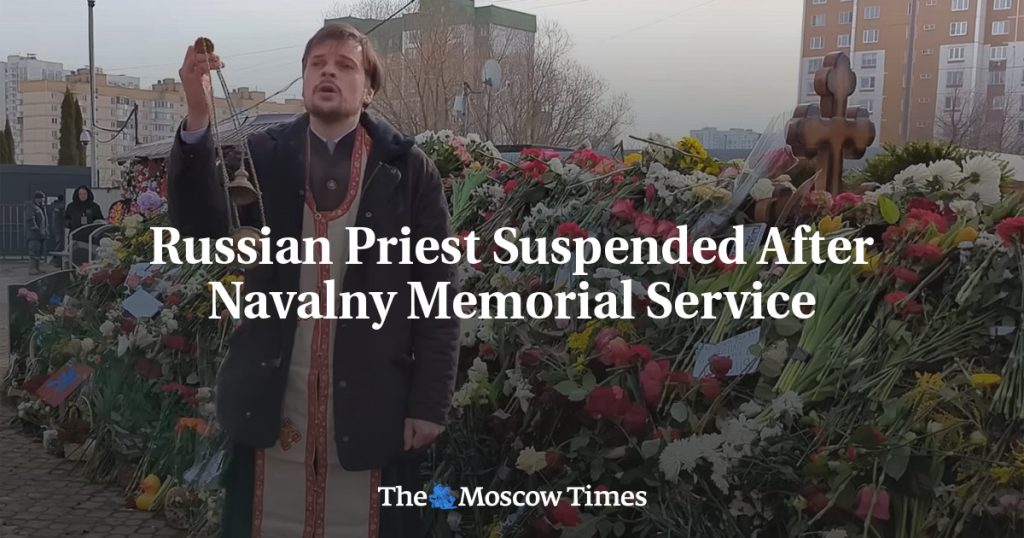The Russian Orthodox Church has suspended a priest, Dmitry Safronov, for leading a memorial service for the late opposition figure Alexei Navalny. Safronov conducted the service at Navalny’s gravesite in Moscow 40 days after his death, in accordance with Orthodox tradition. The suspension was ordered by Patriarch Kirill, a close ally of President Vladimir Putin, who banned Safronov from performing certain duties for three years, starting in April 2024. Safronov was also transferred to another Moscow church and demoted in his responsibilities to be a psalm-reader.
The decision to suspend Safronov was made by the Moscow diocese, although no specific reason was provided for the punishment. In addition to leading Navalny’s memorial service, Safronov had also joined other priests in calling on Russian prison authorities to return Navalny’s body to his family after his death. He had also reportedly refused to recite a prayer for Russia’s victory in Ukraine. These actions likely contributed to his suspension from the church. Patriarch Kirill, known for his strong support of Russia’s invasion of Ukraine, did not explicitly mention these incidents in the ruling regarding Safronov.
The suspension of Safronov highlights the close relationship between the Russian Orthodox Church and the government, particularly President Putin. Patriarch Kirill’s alignment with Putin’s policies, including the invasion of Ukraine, has been evident in his public statements and actions. The church’s decision to punish Safronov for his involvement in activities that contradicted the government’s positions indicates the influence of political considerations on the church’s internal discipline. The role of the church as a supporter of the state is reflected in this incident.
Safronov’s suspension also raises questions about freedom of expression and religious independence in Russia. The punishment of a priest for leading a memorial service and expressing dissenting views on government actions suggests limitations on individual rights within the church. The implications of Safronov’s suspension go beyond internal church matters, affecting broader discussions about the role of religion in public life and the boundaries of acceptable behavior for religious figures. The incident underscores the challenges faced by those who seek to maintain independent perspectives within a context of political and social pressure.
Overall, the suspension of Priest Dmitry Safronov by the Russian Orthodox Church exemplifies the complex dynamics between religion, politics, and individual conscience in Russia. The close ties between the church hierarchy and the government, as well as the constraints on freedom of expression within religious institutions, have been brought to the forefront through this incident. Safronov’s punishment for his involvement in activities deemed incompatible with the church’s official positions underscores the challenges faced by those who seek to navigate conflicting allegiances and principles in a context of authoritarian governance. The repercussions of his suspension reverberate beyond the church, reflecting broader issues related to religious freedom and political influence in Russian society.


